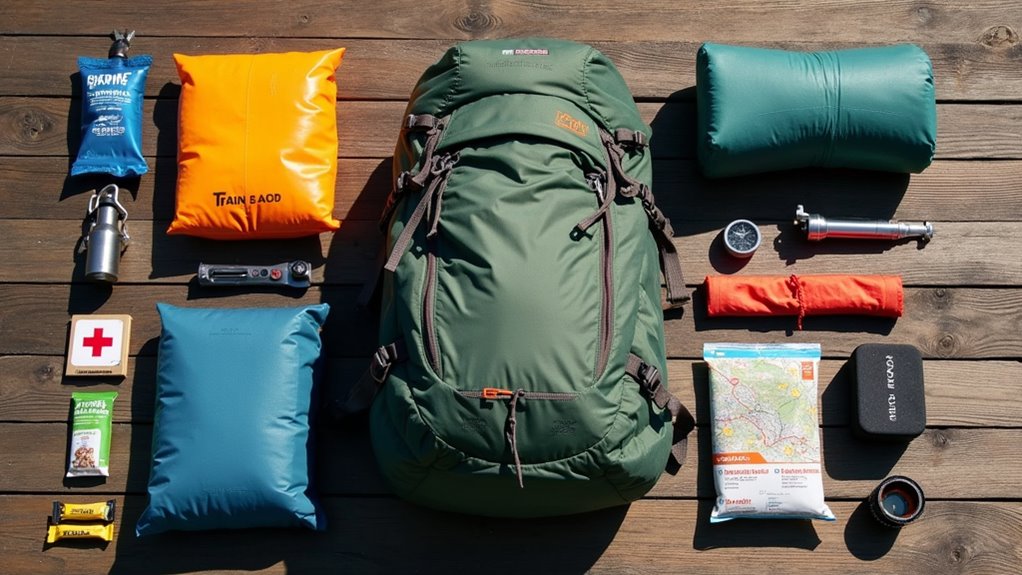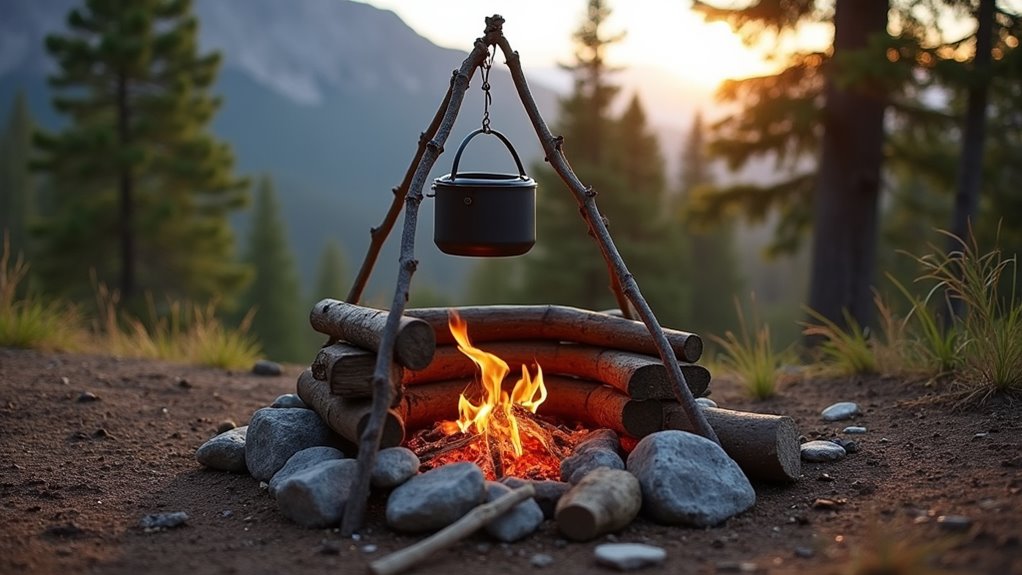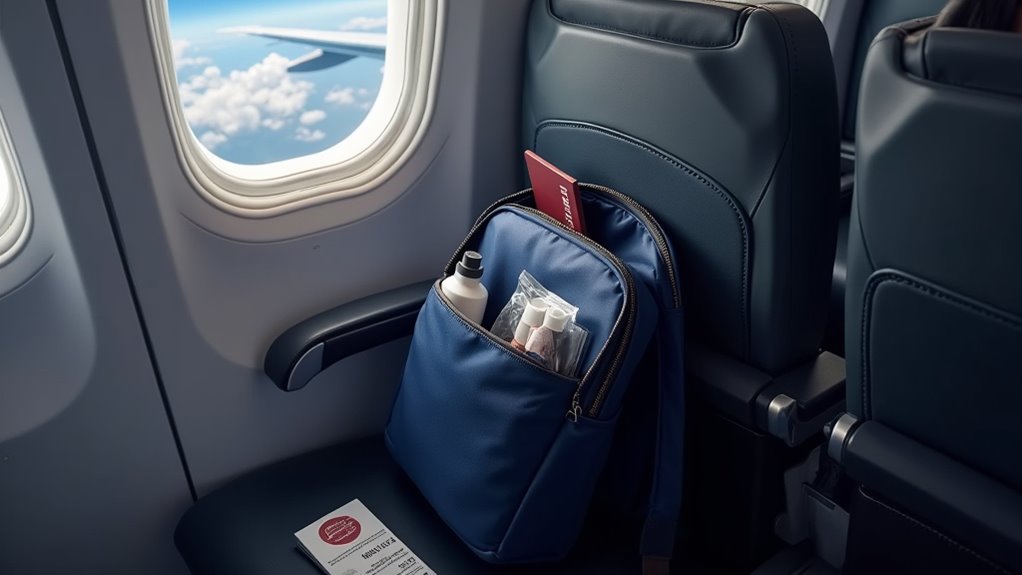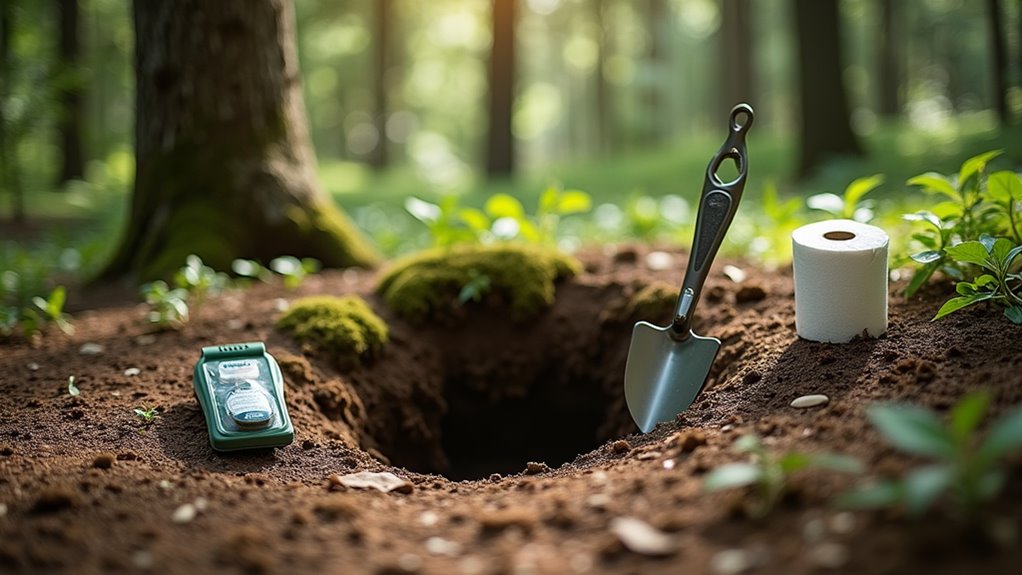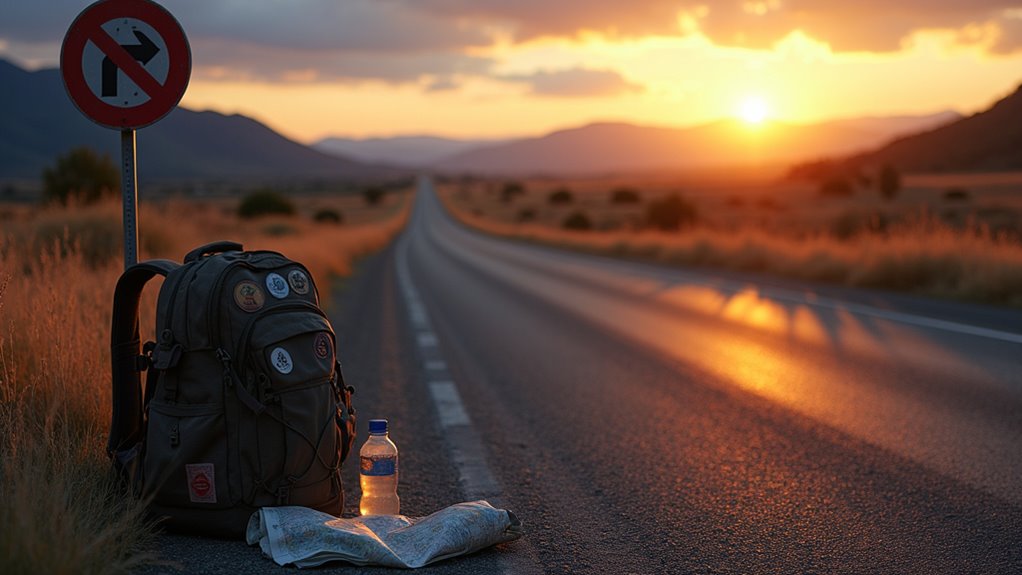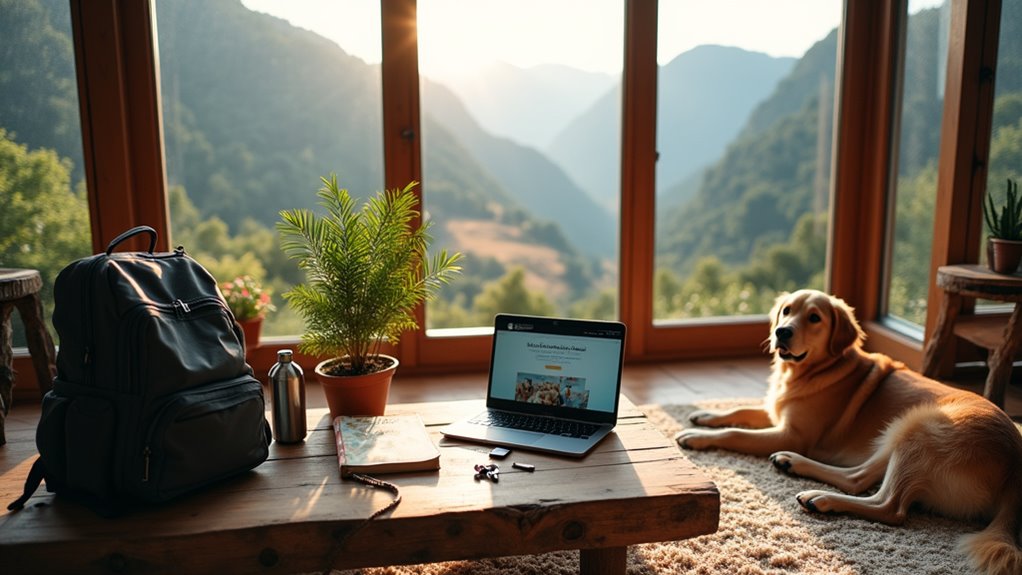For any backpacking trip, you’ll need a sturdy, well-fitted backpack, a lightweight tent or emergency bivvy, and a sleeping bag matched to the expected climate. Pack a water filtration system, a backup like chlorine dioxide tablets, and enough high-energy, non-perishable food for your route. Bring weather-appropriate clothing layers, a durable raincoat, navigation tools such as a compass and paper maps, a headlamp with spare batteries, and a basic first aid kit. These core items create a reliable foundation; you’ll discover further key considerations next.
When preparing for a backpacking trip, having the right essentials is essential for both safety and comfort. Choosing a durable backpack that matches your trip’s length and the amount of gear you’ll carry can make a significant difference. You should confirm your pack is neither too small nor too large. Packing light is important, as every gram counts when you’re carrying your gear over long distances.
Use waterproof stuff sacks or trash compactor bags to protect your belongings from rain, and designate large Ziploc bags for garbage to minimize your environmental footprint. Storing essentials like your phone and important documents in a shoulder strap pocket or easily accessible compartment is practical, while a document wallet keeps your passport, insurance, tickets, and confirmations organized and secure.
Protect your gear from rain with waterproof bags and keep important documents organized and accessible for a smooth, eco-friendly journey.
For shelter and sleep, a lightweight tent with a rainfly, poles, stakes, and guylines will offer adequate weather protection. Always pack an emergency bivvy or compact shelter in case you end up outdoors unexpectedly. Select a sleeping bag or backpacking quilt rated for your destination’s climate, and pair it with a sleeping pad for insulation and comfort. A small, packable pillow can also improve sleep quality after a long day on the trail. When packing for overnight trips, it’s important to bring a backpack suitable for overnight trips to ensure you can comfortably carry all your necessary gear. For longer backpacking excursions, consider packing ultralight options to reduce the strain on your body while hiking.
Water and food are essential on any trip. Carry water storage containers along with a reliable filtration or purification system, and bring backup options such as chlorine dioxide tablets for emergencies. Your cooking setup should include a lightweight stove, cookware, and high-energy, non-perishable foods to maintain energy levels. Region-specific medications, like malaria tablets, may be necessary depending on your destination.
Dress for the weather with hiking shoes, a raincoat, and quick-dry clothing. Sun protection, including suncream and sunglasses, shields you from UV damage. A travel grooming set, packable towel, and extra layering pieces keep you clean and comfortable.
Navigation requires paper maps, a compass, and a headlamp with spare batteries. A multitool, cell phone with power bank, waterproof case, small notebook, and pen are practical additions.
Keep an emergency kit with first aid supplies, a whistle, duct tape, repair tools, fire-starting gear, and backup water treatment. Trekking poles, a lightweight hammock or sit pad, entertainment materials, a camera, and securely stored cash and ID all contribute to a successful trip.
